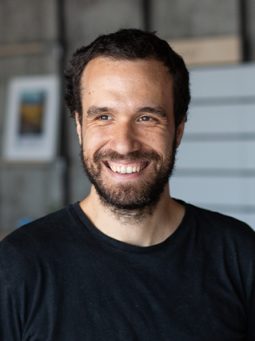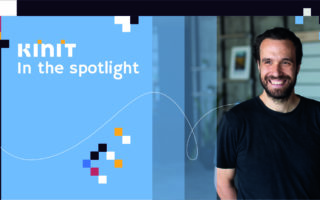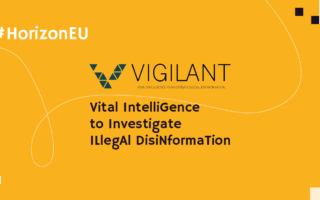What's
KInIT’s first European project will support the fight against misinformation and fact-checking
Bratislava, May 19, 2021 – Only half a year after its founding, the Kempelen Institute of Intelligent Technologies (KInIT) succeeded in an international consortium applying for a European grant. The project of the Central European Digital Media Observatory (CEDMO), which will be created in cooperation with Charles University, the Czech Technical University and other partners from Slovakia, the Czech Republic, Poland, Greece and France, was selected in a strong competition of applicants from all over Europe. Within the consortium, KInIT leads the activity of research and development of disinformation monitoring infrastructure in the online media space and support of fact-checking based on artificial intelligence.
The sophisticated creation of misinformation and hoaxes, which we encounter on a large scale in the online space, reflects the flip side of the current digital age. The problem is that a part of society cannot distinguish them critically enough. The way in which massive misinformation is spreading and penetrating vulnerable groups today is unprecedented. That is why the European Digital Media Observatory (EDMO) has been set up and a network of independent hubs is now being established to link cutting-edge social science and technology research in this area.
More than 30 consortia participated in the EDMO call. “It is very important for Slovakia that it is represented in one of the eight funded projects. I am proud that KInIT is coordinating the technical part of the consortium, which will deal with research and development of artificial intelligence methods that will improve and speed up the fact-checking process. For example, our methods can help with pre-selecting of content that is worth checking out,” says Mária Bieliková, Director of KInIT.
CEDMO is coordinated by Charles University, and the Czech Technical University will cooperate with KInIT on research and development of infrastructure for solving the problem of disinformation. The French news agency (AFP) leads the fact-checking activity in the project consortium. Other members of the consortium are the SWPS University of Social Sciences and Humanities, the University of Ss. Cyril and Methodius in Trnava and non-governmental organizations dealing with the verification of mediated information from the Czech Republic, Slovakia and Poland.
“I am very pleased that KInIT complements a successful consortium for the first more widely organized activities in this domain in Central Europe. In the near future, the state plans to invest in similar initiatives to address the problem of misinformation and hoaxes through the Recovery and Resilience Fund, where special calls will be announced for this purpose,” said Radoslav Repa, Director General of the Digital Agenda Section of the Ministry for Investment, Regional Development and Informatization of the Slovak Republic.
The consortium will jointly contribute to the support of the verification of mediated information through the so-called fact-checking – a process in which media outputs (e.g. articles or posts on social networks) are subjected to factual verification and subsequent confirmation or refutation. The outputs of fact-checking are an important point of reference for everyone, especially today, when the online space is flooded with information with unclear truthfulness.
“At KInIT, we will develop automatic methods to help fact-checkers. We will use the various approaches that artificial intelligence offers, especially natural language processing methods, but also approaches in which artificial intelligence methods work with humans to make their future decisions better,” said Jakub Šimko, who leads the team dealing with the topic of misinformation.


